 Friedrich Wilhelm Nietzsche ( 15 October 1844 – 25 August 1900) was a German philosopher, cultural critic, poet, and Latin and Greek scholar whose work has exerted a profound influence on Western philosophy and modern intellectual history. Beginning his career as a classical philologist before turning to philosophy, he became the youngest-ever occupant of the Chair of Classical Philology at the University of Basel in 1869, at age 24. He resigned in 1879 due to health problems that plagued him most of his life, and he completed much of his core writing in the following decade. In 1889, at age 44, he suffered a collapse and a complete loss of his mental faculties. He lived his remaining years in the care of his mother (until her death in 1897) and then his sister Elisabeth Förster-Nietzsche, and died in 1900.
Friedrich Wilhelm Nietzsche ( 15 October 1844 – 25 August 1900) was a German philosopher, cultural critic, poet, and Latin and Greek scholar whose work has exerted a profound influence on Western philosophy and modern intellectual history. Beginning his career as a classical philologist before turning to philosophy, he became the youngest-ever occupant of the Chair of Classical Philology at the University of Basel in 1869, at age 24. He resigned in 1879 due to health problems that plagued him most of his life, and he completed much of his core writing in the following decade. In 1889, at age 44, he suffered a collapse and a complete loss of his mental faculties. He lived his remaining years in the care of his mother (until her death in 1897) and then his sister Elisabeth Förster-Nietzsche, and died in 1900.Youth (1844–69)
Born on 15 October 1844, Nietzsche grew up in the small town of Röcken, near Leipzig, in the Prussian Province of Saxony. He was named after King Frederick William IV of Prussia, who turned forty-nine on the day of Nietzsche's birth. (Nietzsche later dropped his middle name "Wilhelm".) Nietzsche's parents, Carl Ludwig Nietzsche (1813–49), a Lutheran pastor and former teacher, and Franziska Oehler (1826–97), married in 1843, the year before their son's birth. They had two other children: a daughter, Elisabeth Förster-Nietzsche, born in 1846, and a second son, Ludwig Joseph, born in 1848. Nietzsche's father died from a brain ailment in 1849; Ludwig Joseph died the next year, at age two. The family then moved to Naumburg, where they lived with Nietzsche's maternal grandmother and his father's two unmarried sisters. After the death of Nietzsche's grandmother in 1856, the family moved into their own house, now Nietzsche-Haus, a museum and Nietzsche study centre.
Nietzsche attended a boys' school and then, later, a private school, where he became friends with Gustav Krug, Rudolf Wagner, and Wilhelm Pinder, all of whom came from highly respected families.
In 1854, he began to attend Domgymnasium in Naumburg but since he showed particular talents in music and language, the internationally recognized Schulpforta admitted him as a pupil. He transferred and studied there from 1858 to 1864, becoming friends with Paul Deussen and Carl von Gersdorff. He also found time to work on poems and musical compositions. At Schulpforta, Nietzsche received an important grounding in languages—Greek, Latin, Hebrew, and French—so as to be able to read important primary sources; he also experienced for the first time being away from his family life in a small-town conservative environment. His end-of-semester exams in March 1864 showed a 1 in Religion and German; a 2a in Greek and Latin; a 2b in French, History, and Physics; and a "lackluster" 3 in Hebrew and Mathematics.
While at Pforta, Nietzsche had a penchant for pursuing subjects that were considered unbecoming. He became acquainted with the work of the then almost-unknown poet Friedrich Hölderlin, calling him "my favorite poet" and composing an essay in which he said that the mad poet raised consciousness to "the most sublime ideality." The teacher who corrected the essay gave it a good mark but commented that Nietzsche should concern himself in the future with healthier, more lucid, and more "German" writers. Additionally, he became acquainted with Ernst Ortlepp, an eccentric, blasphemous, and often drunken poet who was found dead in a ditch weeks after meeting the young Nietzsche but who may have introduced Nietzsche to the music and writing of Richard Wagner. Perhaps under Ortlepp's influence, he and a student named Richter returned to school drunk and encountered a teacher, resulting in Nietzsche's demotion from first in his class and the end of his status as a prefect.
After graduation in September 1864, Nietzsche commenced studies in theology and classical philology at the University of Bonn with hope of becoming a minister. For a short time he and Deussen became members of the Burschenschaft Frankonia. After one semester (and to the anger of his mother), he stopped his theological studies and lost his faith. As early as his 1862 essay "Fate and History", Nietzsche had argued that historical research had discredited the central teachings of Christianity,[24] butDavid Strauss's Life of Jesus also seems to have had a profound effect on the young man.[23] In 1865, at the age of 20, Nietzsche wrote to his sister Elisabeth, who was deeply religious, a letter regarding his loss of faith. This letter ended with the following sentence:
Nietzsche subsequently concentrated on studying philology under Professor Friedrich Wilhelm Ritschl, whom he followed to the University of Leipzig in 1865. There, he became close friends with his fellow student Erwin Rohde. Nietzsche's first philological publications appeared soon after.
In 1865, Nietzsche thoroughly studied the works of Arthur Schopenhauer. He owed the awakening of his philosophical interest to reading Schopenhauer's The World as Will and Representation and later admitted that Schopenhauer was one of the few thinkers whom he respected, dedicating to him the essay "Schopenhauer as Educator" in the Untimely Meditations.
In 1866, he read Friedrich Albert Lange's History of Materialism. Lange's descriptions of Kant's anti-materialistic philosophy, the rise of European Materialism, Europe's increased concern with science,Charles Darwin's theory of evolution, and the general rebellion against tradition and authority intrigued Nietzsche greatly. The cultural environment encouraged him to expand his horizons beyond philology and continue his study of philosophy, although Nietzsche would ultimately argue the impossibility of an evolutionary explanation of the human aesthetic sense.
In 1867, Nietzsche signed up for one year of voluntary service with the Prussian artillery division in Naumburg. He was regarded as one of the finest riders among his fellow recruits, and his officers predicted that he would soon reach the rank of captain. However, in March 1868, while jumping into the saddle of his horse, Nietzsche struck his chest against the pommel and tore two muscles in his left side, leaving him exhausted and unable to walk for months. Consequently, Nietzsche turned his attention to his studies again, completing them and meeting with Richard Wagner for the first time later that year.
Professor at Basel (1869–78)
In part because of Ritschl's support, Nietzsche received a remarkable offer to become professor ofclassical philology at the University of Basel in Switzerland. He was only 24 years old and had neither completed his doctorate nor received a teaching certificate ("habilitation"). He was awarded an honorary doctorate by the University of Leipzig again with Ritschl's support.
Despite the fact that the offer came at a time when he was considering giving up philology for science, he accepted. To this day, Nietzsche is still among the youngest of the tenured Classics professors on record.
Nietzsche's 1870 projected doctoral thesis, Contribution toward the Study and the Critique of the Sources of Diogenes Laertius (Beitrage zur Quellenkunde und Kritik des Laertius Diogenes), examined the origins of the ideas of Diogenes Laertius. Though never submitted, it was later published as aGratulationsschrift (congratulatory publication) at Basel.
Before moving to Basel, Nietzsche renounced his Prussian citizenship: for the rest of his life he remained officially stateless.
Nevertheless, Nietzsche served in the Prussian forces during the Franco-Prussian War (1870–1871) as a medical orderly. In his short time in the military, he experienced much and witnessed the traumatic effects of battle. He also contracted diphtheria and dysentery. Walter Kaufmann speculates that he might also have contracted syphilis at a brothel along with his other infections at this time.[39][40] On returning to Basel in 1870, Nietzsche observed the establishment of the German Empire and Otto von Bismarck's subsequent policies as an outsider and with a degree of skepticism regarding their genuineness. His inaugural lecture at the university was "Homer and Classical Philology". Nietzsche also metFranz Overbeck, a professor of theology who remained his friend throughout his life. Afrikan Spir, a little-known Russian philosopher responsible for the 1873 Thought and Reality, and Nietzsche's colleague the famed historian Jacob Burckhardt, whose lectures Nietzsche frequently attended, began to exercise significant influence on him during this time.
Nietzsche had already met Richard Wagner in Leipzig in 1868 and later Wagner's wife, Cosima. Nietzsche admired both greatly and, during his time at Basel, he frequently visited Wagner's house in Tribschen in Lucerne. The Wagners brought Nietzsche into their most intimate circle and enjoyed the attention he gave to the beginning of the Bayreuth Festival. In 1870, he gave Cosima Wagner the manuscript of "The Genesis of the Tragic Idea" as a birthday gift. In 1872, Nietzsche published his first book, The Birth of Tragedy. However, his colleagues within his field, including Ritschl, expressed little enthusiasm for the work, in which Nietzsche eschewed the classical philologic method in favor of a more speculative approach. In his polemic Philology of the Future, Ulrich von Wilamowitz-Moellendorff dampened the book's reception and increased its notoriety. In response, Rohde (then a professor in Kiel) and Wagner came to Nietzsche's defense. Nietzsche remarked freely about the isolation he felt within the philological community and attempted unsuccessfully to transfer to a position in philosophy at Basel instead.
In 1873, Nietzsche began to accumulate notes that would be posthumously published as Philosophy in the Tragic Age of the Greeks. Between 1873 and 1876, he published four separate long essays: "David Strauss: the Confessor and the Writer", "On the Use and Abuse of History for Life", "Schopenhauer as Educator" and "Richard Wagner in Bayreuth". These four later appeared in a collected edition under the title Untimely Meditations. The essays shared the orientation of a cultural critique, challenging the developing German culture along lines suggested by Schopenhauer and Wagner. During this time, in the circle of the Wagners, Nietzsche met Malwida von Meysenbug and Hans von Bülow, and also began a friendship with Paul Rée, who in 1876 influenced him into dismissing the pessimism in his early writings. However, he was deeply disappointed by the Bayreuth Festival of 1876, where the banality of the shows and baseness of the public repelled him. He was also alienated by Wagner's championing of "German culture", which Nietzsche felt a contradiction in terms, as well as by Wagner's celebration of his fame among the German public. All this contributed to Nietzsche's subsequent decision to distance himself from Wagner.
With the publication in 1878 of Human, All Too Human (a book of aphorisms ranging from metaphysics to morality to religion to gender studies), a new style of Nietzsche's work became clear, highly influenced by Afrikan Spir's Thought and Reality and reacting against the pessimistic philosophy of Wagner and Schopenhauer. Nietzsche's friendship with Deussen and Rohde cooled as well. In 1879, after a significant decline in health, Nietzsche had to resign his position at Basel. (Since his childhood, various disruptive illnesses had plagued him, including moments of shortsightedness that left him nearly blind, migraine headaches, and violent indigestion. The 1868 riding accident and diseases in 1870 may have aggravated these persistent conditions, which continued to affect him through his years at Basel, forcing him to take longer and longer holidays until regular work became impractical.)
Independent philosopher (1879–88)
Living off his pension from Basel and aid from friends, Nietzsche travelled frequently to find climates more conducive to his health and lived until 1889 as an independent author in different cities. He spent many summers in Sils Maria near St. Moritz in Switzerland. He spent his winters in the Italian cities of Genoa, Rapallo, and Turin and the French city of Nice. In 1881, when France occupied Tunisia, he planned to travel to Tunis to view Europe from the outside but later abandoned that idea, probably for health reasons. Nietzsche occasionally returned to Naumburg to visit his family, and, especially during this time, he and his sister had repeated periods of conflict and reconciliation.
While in Genoa, Nietzsche's failing eyesight prompted him to explore the use of typewriters as a means of continuing to write. He is known to have tried using the Hansen Writing Ball, a contemporary typewriter device. In the end, a past student of his, Heinrich Köselitz orPeter Gast, became a sort of private secretary to Nietzsche. In 1876, Gast transcribed the crabbed, nearly illegible handwriting of Nietzsche for the first time with Richard Wagner in Bayreuth. He subsequently transcribed and proofread the galleys for almost all of Nietzsche's work from then on. On at least one occasion on February 23, 1880, the usually broke Gast received 200 marks from their mutual friend, Paul Rée. Gast was one of the very few friends Nietzsche allowed to criticize him. In responding most enthusiastically toZarathustra, Gast did feel it necessary to point out that what were described as "superfluous" people were in fact quite necessary. He went on to list the number of people Epicurus, for example, had to rely on even to supply his simple diet of goat cheese.
To the end of his life, Gast and Overbeck remained consistently faithful friends. Malwida von Meysenbug remained like a motherly patron even outside the Wagner circle. Soon Nietzsche made contact with the music-critic Carl Fuchs. Nietzsche stood at the beginning of his most productive period. Beginning with Human, All Too Human in 1878, Nietzsche would publish one book or major section of a book each year until 1888, his last year of writing; that year, he completed five.
In 1882, Nietzsche published the first part of The Gay Science. That year he also met Lou Andreas Salomé, through Malwida von Meysenbug and Paul Rée. Nietzsche and Salomé spent the summer together in Tautenburg in Thuringia, often with Nietzsche's sister Elisabeth as a chaperone. Nietzsche, however, regarded Salomé less as an equal partner than as a gifted student. Salomé reports that he asked her to marry him on three separate occasions and that she refused, though the reliability of her reports of events has come into question. Nietzsche's relationship with Rée and Salomé broke up in the winter of 1882–83, partially because of intrigues conducted by Elisabeth. The trio had had plans to establish a educational commune in an abandoned monastery, but the idea was abandoned. Amidst renewed bouts of illness, living in near-isolation after a falling out with his mother and sister regarding Salomé, Nietzsche fled to Rapallo, where he wrote the first part of Thus Spoke Zarathustra in only ten days.
By 1882 Nietzsche was taking huge doses of opium but was still having trouble sleeping. In 1883, while staying in Nice, he was writing out his own prescriptions for the sedative chloral hydrate, signing them "Dr. Nietzsche".
After severing his philosophical ties with Schopenhauer (who was long dead and never met Nietzsche) and his social ties with Wagner, Nietzsche had few remaining friends. Now, with the new style of Zarathustra, his work became even more alienating and the market received it only to the degree required by politeness. Nietzsche recognized this and maintained his solitude, though he often complained about it. His books remained largely unsold. In 1885, he printed only 40 copies of the fourth part ofZarathustra and distributed only a fraction of these among close friends, including Helene von Druskowitz.
In 1883 he tried and failed to obtain a lecturing post at the University of Leipzig. It was made clear to him that, in view of his attitude towards Christianity and his concept of God, he had become effectively unemployable by any German university. The subsequent "feelings of revenge and resentment" embittered him: "And hence my rage since I have grasped in the broadest possible sense what wretched means (the depreciation of my good name, my character, and my aims) suffice to take from me the trust of, and therewith the possibility of obtaining, pupils."
In 1886 Nietzsche broke with his publisher Ernst Schmeitzner, disgusted by his antisemitic opinions. Nietzsche saw his own writings as "completely buried and unexhumeable in this anti-Semitic dump" of Schmeitzner—associating the publisher with a movement that should be "utterly rejected with cold contempt by every sensible mind". He then printed Beyond Good and Evil at his own expense. He also acquired the publication rights for his earlier works and over the next year issued second editions of The Birth of Tragedy, Human, All Too Human, Daybreak, and The Gay Science with new prefaces placing the body of his work in a more coherent perspective. Thereafter, he saw his work as completed for a time and hoped that soon a readership would develop. In fact, interest in Nietzsche's thought did increase at this time, if rather slowly and hardly perceptibly to him. During these years Nietzsche met Meta von Salis, Carl Spitteler, andGottfried Keller.
In 1886, his sister Elisabeth also married the antisemite Bernhard Förster and travelled to Paraguay to found Nueva Germania, a "Germanic" colony—a plan Nietzsche responded to with mocking laughter. Through correspondence, Nietzsche's relationship with Elisabeth continued through cycles of conflict and reconciliation, but they met again only after his collapse. He continued to have frequent and painful attacks of illness, which made prolonged work impossible.
In 1887 Nietzsche wrote the polemic On the Genealogy of Morals. During the same year, he encountered the work of Fyodor Dostoevsky, to whom he felt an immediate kinship. He also exchanged letters with Hippolyte Taine and Georg Brandes. Brandes, who had started to teach the philosophy of Søren Kierkegaard in the 1870s, wrote to Nietzsche asking him to read Kierkegaard, to which Nietzsche replied that he would come to Copenhagen and read Kierkegaard with him. However, before fulfilling this promise, he slipped too far into illness. In the beginning of 1888, Brandes delivered in Copenhagen one of the first lectures on Nietzsche's philosophy.
Although Nietzsche had previously announced at the end of On The Genealogy of Morals a new work with the title The Will to Power: Attempt at a Revaluation of All Values, he eventually seems to have abandoned this idea and instead used some of the draft passages to compose Twilight of the Idols and The Antichrist in 1888.
His health seemed to improve, and he spent the summer in high spirits. In the fall of 1888, his writings and letters began to reveal a higher estimation of his own status and "fate". He overestimated the increasing response to his writings, however, especially to the recent polemic, "The Case of Wagner". On his 44th birthday, after completing Twilight of the Idols and The Antichrist, he decided to write the autobiography Ecce Homo. In its preface—which suggests Nietzsche was well aware of the interpretive difficulties his work would generate—he declares, "Hear me! For I am such and such a person. Above all, do not mistake me for someone else". In December, Nietzsche began a correspondence with August Strindberg and thought that, short of an international breakthrough, he would attempt to buy back his older writings from the publisher and have them translated into other European languages. Moreover, he planned the publication of the compilation Nietzsche Contra Wagner and of the poems that made up his collection Dionysian Dithyrambs.
Mental breakdown and death (1889–1900)
On 3 January 1889, Nietzsche suffered a mental collapse. Two policemen approached him after he caused a public disturbance in the streets of Turin. What happened remains unknown, but an often-repeated tale from shortly after his death states that Nietzsche witnessed the flogging of a horse at the other end of the Piazza Carlo Alberto, ran to the horse, threw his arms up around its neck to protect it, and then collapsed to the ground.
In the following few days, Nietzsche sent short writings—known as the Wahnzettel ("Madness Letters")—to a number of friends including Cosima Wagner and Jacob Burckhardt. Most of them were signed "Dionysos", though some were also signed "der Gekreuzigte" meaning "the crucified one". To his former colleague Burckhardt, Nietzsche wrote: "I have had Caiaphas put in fetters. Also, last year I was crucified by the German doctors in a very drawn-out manner. Wilhelm, Bismarck, and all anti-Semites abolished." Additionally, he commanded the German emperor to go to Rome to be shot and summoned the European powers to take military action against Germany.
On 6 January 1889, Burckhardt showed the letter he had received from Nietzsche to Overbeck. The following day, Overbeck received a similar letter and decided that Nietzsche's friends had to bring him back to Basel. Overbeck travelled to Turin and brought Nietzsche to a psychiatric clinic in Basel. By that time Nietzsche appeared fully in the grip of a serious mental illness, and his mother Franziska decided to transfer him to a clinic in Jena under the direction of Otto Binswanger. In January 1889, they proceeded with the planned release of Twilight of the Idols, by that time already printed and bound. From November 1889 to February 1890, the art historian Julius Langbehn attempted to cure Nietzsche, claiming that the methods of the medical doctors were ineffective in treating Nietzsche's condition. Langbehn assumed progressively greater control of Nietzsche until his secretiveness discredited him. In March 1890, Franziska removed Nietzsche from the clinic and, in May 1890, brought him to her home in Naumburg. During this process Overbeck and Gast contemplated what to do with Nietzsche's unpublished works. In February, they ordered a fifty-copy private edition of Nietzsche contra Wagner, but the publisher C. G. Naumann secretly printed one hundred. Overbeck and Gast decided to withhold publishing The Antichrist and Ecce Homo because of their more radical content. Nietzsche's reception and recognition enjoyed their first surge.
In 1893, Nietzsche's sister Elisabeth returned from Nueva Germania in Paraguay following the suicide of her husband. She read and studied Nietzsche's works and, piece by piece, took control of them and their publication. Overbeck eventually suffered dismissal and Gast finally co-operated. After the death of Franziska in 1897, Nietzsche lived in Weimar, where Elisabeth cared for him and allowed visitors, including Rudolf Steiner (who in 1895 had written one of the first books praising Nietzsche), to meet her uncommunicative brother. Elisabeth at one point went so far as to employ Steiner as a tutor to help her to understand her brother's philosophy. Steiner abandoned the attempt after only a few months, declaring that it was impossible to teach her anything about philosophy.
Nietzsche's mental illness was originally diagnosed as tertiary syphilis, in accordance with a prevailing medical paradigm of the time. Although most commentators regard his breakdown as unrelated to his philosophy, Georges Bataille dropped dark hints ("'Man incarnate' must also go mad") and René Girard's postmortem psychoanalysis posits a worshipful rivalry with Richard Wagner. Nietzsche had previously written, "all superior men who were irresistibly drawn to throw off the yoke of any kind of morality and to frame new laws had, if they were not actually mad, no alternative but to make themselves or pretend to be mad" (Daybreak,14). The diagnosis of syphilis has since been challenged and a diagnosis of "manic-depressive illness with periodic psychosis followed by vascular dementia" was put forward by Cybulska prior to Schain's study. Leonard Sax suggested the slow growth of a right-sided retro-orbital meningioma as an explanation of Nietzsche's dementia; Orth and Trimble postulated frontotemporal dementia while other researchers have proposed a hereditary stroke disorder called CADASIL. Poisoning by mercury, a treatment for syphilis at the time of Nietzsche's death, has also been suggested.
In 1898 and 1899 Nietzsche suffered at least two strokes. This partially paralyzed him, leaving him unable to speak or walk. He likely suffered from clinical hemiparesis/hemiplegia on the left side of his body by 1899. After contracting pneumonia in mid-August 1900, he had another stroke during the night of 24–25 August and died at about noon on 25 August. Elisabeth had him buried beside his father at the church in Röcken bei Lützen. His friend and secretary Gast gave his funeral oration, proclaiming: "Holy be your name to all future generations!" Nietzsche had written in Ecce Homo (at that point still unpublished) of his fear that one day his name would be regarded as "holy".
Elisabeth Förster-Nietzsche compiled The Will to Power from Nietzsche's unpublished notebooks and published it posthumously. Because his sister arranged the book based on her own conflation of several of Nietzsche's early outlines and took great liberties with the material, the scholarly consensus has been that it does not reflect Nietzsche's intent. (For example, Elisabeth removed aphorism 35 of The Antichrist, where Nietzsche rewrote a passage of the Bible.) Indeed, Mazzino Montinari, the editor of Nietzsche's Nachlass, called it a forgery.
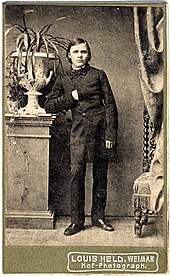
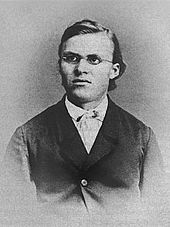


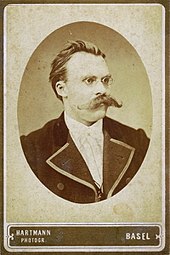
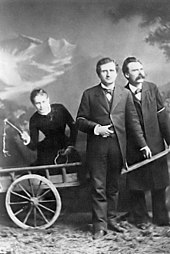
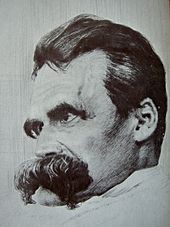


No comments:
Post a Comment